Indonesian anti-LGBT crackdown has led to five-fold increase in HIV, report shows
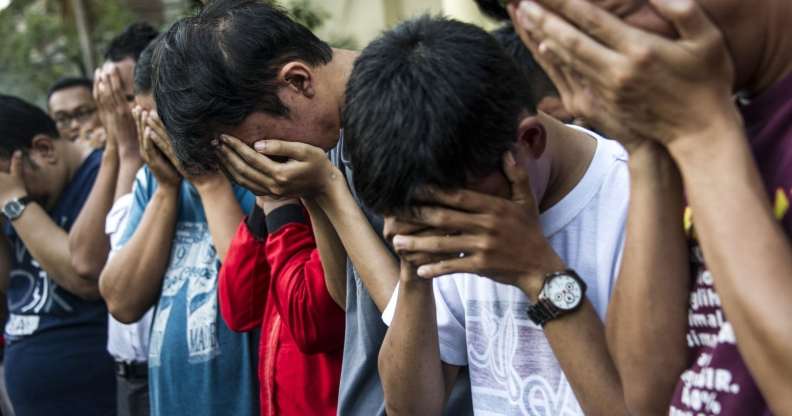
The law would restrict LGBT+ activities in the region in Indonesia (JUNI KRISWANTO/AFP/Getty)
The law would restrict LGBT+ activities in the region in Indonesia (JUNI KRISWANTO/AFP/Getty)
The ongoing crackdown on Indonesian LGBT people has led to a 500 percent increase in the number of people with HIV in the country.
Since the beginning of 2016, authorities have arrested hundreds of people for being LGBT, with two men caned 83 times last year in Aceh as a legal punishment for having gay sex.
Aceh is the only part of the Muslim-majority country where gay sex is already illegal, as the region has Sharia law, having won this concession from the government as part of a 2005 autonomy deal.
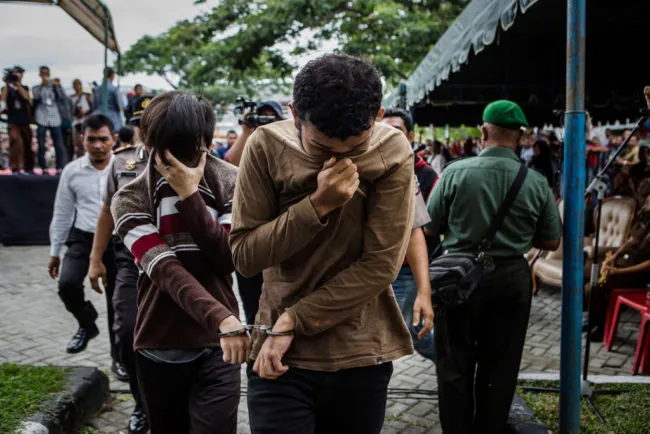
Gay men in Indonesia being led to be lashed 83 times (Ulet Ifansasti/Getty)
But according to a new report by Human Rights Watch, Indonesia’s “systematic crackdown on LGBT rights” has been so severe, it has led to a health crisis.
The organisation has outlined how “widespread stigma and discrimination against populations at risk of HIV, as well as people living with HIV, has discouraged some HIV-vulnerable populations from accessing prevention and treatment services.
“As a result, HIV rates among men who have sex with men (MSM) have increased five-fold since 2007 from 5 percent to 25 percent.”
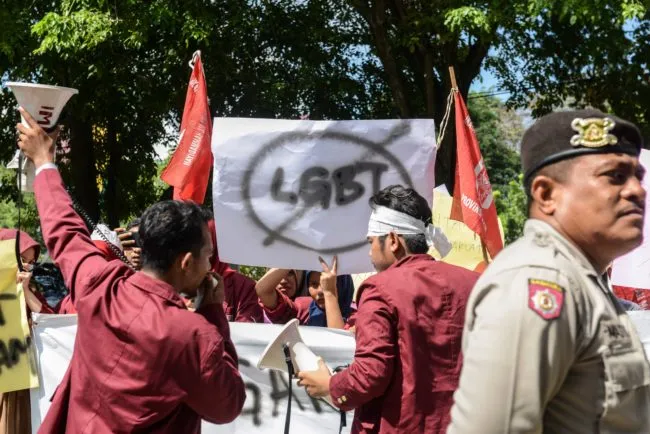
Indonesian protesters (Getty)
HRW added that “the anti-LGBT moral panic and unlawful police raids have made public health outreach to the most at-risk populations far more difficult,” which, it says, makes “wider spread of the virus more likely.”
Kyle Knight, who wrote the report, explained: “The Indonesian government’s failure to address anti-LGBT moral panic is having dire consequences for public health.
“The Indonesian government should recognise that its role in abuses against LGBT people is seriously compromising the country’s response to HIV.”
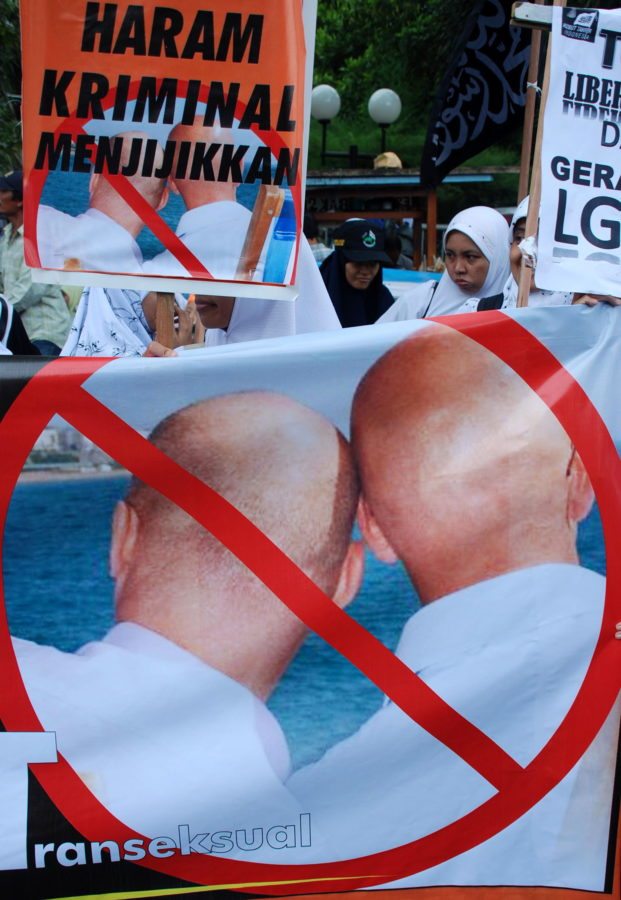
Indonesian protesters hold a banner reading: “Forbidden, Crime and Disgusting,” which refers to same-sex relationships (Getty)
Nigrat L, a 47-year-old transgender woman who acts as an outreach worker in the capital of Jakarta, told HRW: “Violence will always be there – it always has been with us.
“It’s just part of our lives. It’s normal. We just know it as our bad luck that day, and maybe tomorrow too, or maybe tomorrow will be better.”
In January, Indonesian police arrested 12 transgender women in Aceh and shaved their heads in an effort “to turn them into men”.
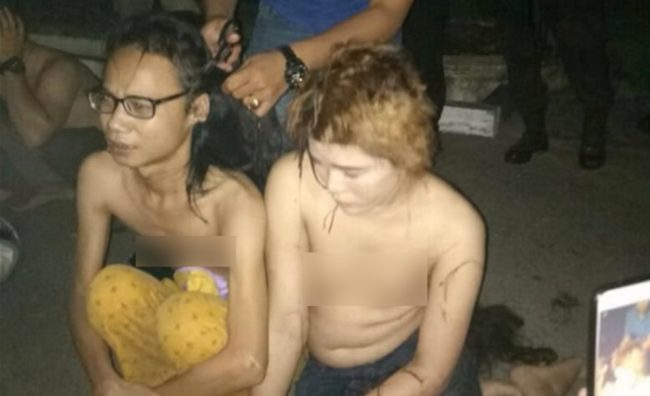
12 Indonesian trans women were arrested and humiliated (LOE TUBE/YouTube)
The raid on salons was called “operasi penyakit masyarakat,” which translates as “community sickness operation”.
A new criminal code is currently making its way through the country’s Parliament, which, if passed, would ban gay sex.
The ban – which could make gay sex punishable by up to five years in prison – was set to come into effect in February, but was delayed.
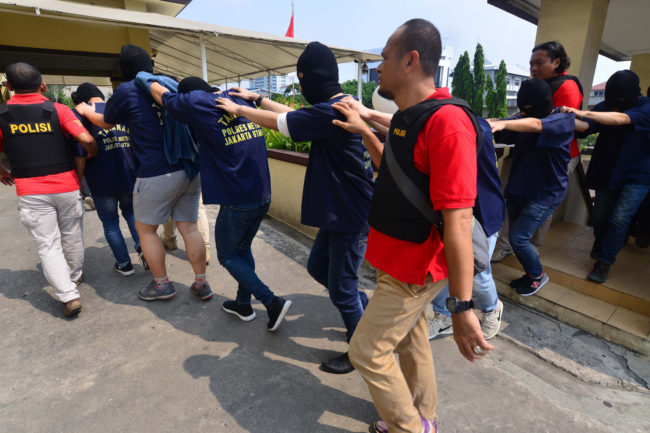
Indonesian police with some of the 141 men detained for holding a ‘gay sex party’ last year (FERNANDO/AFP/Getty)
Amnesty International has repeatedly urged Indonesia to stop its horrific treatment of LGBT people in Aceh, but queer Indonesians suffer all over the country.
The caning punishment came the day after 141 men were arrested in Jakarta for having a “gay sex party”.
These arrests came at the Atlantis Gym, a public health outreach centre where men who have sex with men could come for HIV education, testing and counselling.
Earlier that same month, eight men were arrested for holding a “gay party” in Surabaya, the second biggest city in Indonesia.

